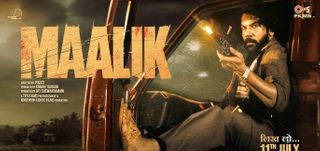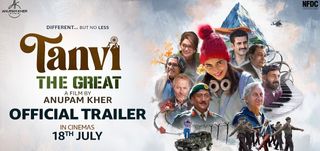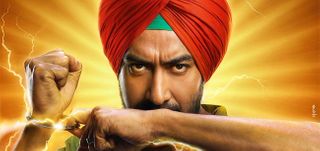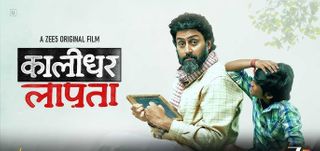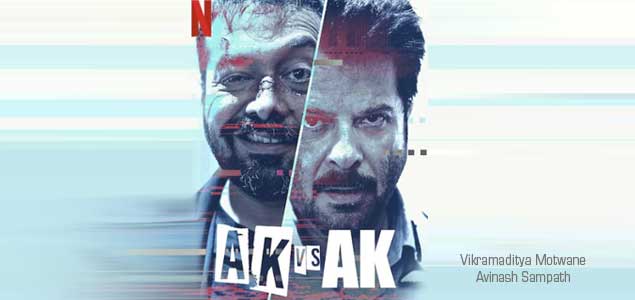
AK vs AK Movie Review
With AK vs AK, director Vikramaditya Motwane asks the audience to think about who among a filmmaker and movie star is more important to a film. The film starts with a talk show featuring its two protagonists, Anil Kapoor and Anurag Kashyap as twisted versions of themselves.
There exists an ego clash between the star and director that is evident even before their conversation begins. Kapoor asks Kashyap to do a film with him, but the latter rejects the offer saying that the former is no longer good enough to be a hero. The Kashyap in AK vs AK is holding a grudge against the Kapoor in the film for the latter once caused the former's dream project to be shelved.
The irony is that 'Allwyn Kalicharan' is a real Kashyap project that got shelved for Kapoor supposedly backed out of it. In AK vs AK, this event does not go down well with Kashyap. And, that triggers an off-screen clash between the director and actor that goes overboard, to say the least.
So, there is a movie-within-the-movie where Kashyap kidnaps Anil's actor-daughter Sonam Kapoor and films the star's search for her in the hope to get a method actor performance from him. This is Motwane's film's conceit, and it is what produces some of the movie's ingenious sequences.
Throughout AK vs AK, Kashyap and his assistant Yogita (Yogita Bihani) follow Kapoor wherever he goes in search of his kidnapped daughter. This allows them to trick the onlookers into thinking that whatever they see is part of a rehearsal. This perception means Anil must pose for photographs, sign off autograph requests, and even beg the public to help him find a lead to his missing daughter. It is the director's way of saying that the public still gets to decide who does what in showbiz.
Motwane is not looking to stretch an in-joke into a feature-length film here. He aims for a higher realm of cinema that blurs the lines between fact and fiction, and that is not afraid to take a few chances. I kind of hated the fact that this movie-within-the-movie part of Motwane's work should have a conventional ending. The movie may still have worked without it for such is the brilliance of its conceit.
What works best here are the well-orchestrated performances. This is the kind of movie where the audiences are constantly reminded that they are watching a film. So, the performances also have to be in accordance with that part-fiction-part-fact world the director is aiming for here. Kashyap plays a more egoistic version of himself, one who gets easily upset over minor criticism. Remember, this is the same director who once humbly responded to the audience's criticism of 'Gangs of Wasseypur' in a nationally-televised show. So, is Kashyap as egoistic as Motwane's film shows? I do not quite think so.
On the other hand, Kapoor also sheds his vanity, and he is particularly effective in the scenes where he play-acts in that other movie. Watch the actor in those scenes where he pleads to people for help with the strange situation in his life. Those and more scenes show that Kapoor is not just a fine actor but also a good sport.
Avinash Sampath's script has many layers, with even the seemingly trivial bits having a lot to say about how the Hindi film industry works. The filmmaking moments also stand out here, especially a long take where Kapoor chases a lead even as Kashyap and Yogita follow him. This sequence set in nocturnal Mumbai is one of the film's highlights, and it has a subtle, offhand remark about about the star-director prominence scenario in showbiz.











